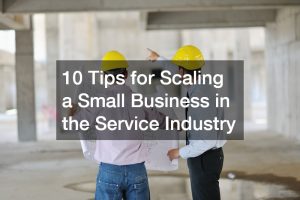- Effective teaching requires regular self-reflection, a mentor for guidance, adept classroom management skills, staying updated with educational trends, and adaptability.
- Teachers need to be adaptable, adjusting their teaching methods to meet the changing demands of the educational landscape and the diverse learning needs of students.
- Building positive relationships with students, parents, and colleagues is fundamental to effective teaching.
- Becoming an effective teacher involves lifelong learning, adaptability, and relationship-building, with every step shaping students’ future.
Embarking on a journey to become a teacher can be both exciting and challenging. Remember, it’s not just about mastering the subject matter, but also about understanding your students, their learning styles, and their needs. Here are a few tips to remember as you work towards achieving your dream of shaping young minds.
Pursue Further Education

Becoming a teacher is a continuous journey of learning and development. One key area to focus on is pursuing further education, particularly through online Continuing Professional Development (CPD) courses for teachers. These specially tailored courses are designed to keep you abreast of the latest teaching methodologies, classroom management strategies, and curricular modifications.
Embracing online CPD courses allows you to improve your practice while balancing your professional and personal life, with the added advantage of learning at your own pace. These courses also offer an opportunity to connect with a broader community of educators, fostering a shared learning and collaboration culture. So, as you strive to become an effective teacher, consider taking online CPD courses as a key component of your journey.
Reflect and Improve
Continuous reflection and improvement are the cornerstones of an effective teaching practice. It involves regularly scrutinizing and assessing your teaching methods and strategies to identify areas needing enhancement. Here are some tips:
Find a Mentor
Having a mentor can be an invaluable resource in your teaching journey. A mentor, ideally an experienced educator, can provide guidance, share insights, and help you navigate the complex education landscape. They can offer constructive criticism, share their experiences and strategies, and assist you in developing your teaching style.
Most importantly, a mentor can provide moral support during challenging times, fostering resilience and encouraging perseverance. So, reach out to a seasoned teacher you admire, or connect with potential mentors through professional education networks or associations.
By cultivating a mentoring relationship, you’ll gain knowledge and practical insights and develop professionally and personally. Remember, every accomplished teacher was once a novice seeking guidance.
Classroom Management Skills
Mastering classroom management skills is another crucial aspect of becoming an effective teacher. A well-managed classroom promotes optimal learning by minimizing distractions and disruptions while fostering an environment of respect and positive engagement. It involves creating clearly defined rules and expectations, using proactive strategies to prevent misbehavior, and implementing constructive discipline methods when needed.
Additionally, classroom management extends beyond discipline. It also encompasses designing educational activities that inspire student participation, developing fair and consistent grading systems, and building a classroom culture where students feel safe, heard, and valued. Therefore, as an aspiring teacher, investing time and effort in honing your classroom management skills can significantly impact your student’s academic success and overall learning experience.
Stay Updated
In an ever-evolving educational landscape, staying updated with the latest research, educational trends, and tech developments is essential for teachers. This is not just about keeping your knowledge fresh, but also about incorporating innovative teaching strategies into your classroom.
Regularly reading educational journals, attending seminars and webinars, and participating in teacher networks can serve as effective ways to stay informed. Additionally, staying updated with technological advancements is crucial as digital tools have become integral to modern teaching.
Familiarity with various educational software and applications can enhance student engagement and facilitate diverse learning styles. In essence, staying updated is about being a lifelong learner, always open to new ideas and methods to enrich your teaching practice and ultimately, your student’s learning experience.
Be Adaptable

Adaptability is a crucial trait for modern educators. The dynamic landscape of education often demands changes in curriculum, teaching methodologies, and classroom technology. As a teacher, your ability to be flexible and adapt to these changes is essential to cater to the diverse learning needs of your students effectively.
In addition, cultural shifts, societal trends, and global events can greatly impact the educational environment. Thus, you must be ready to revise your strategies, update your lesson plans, and switch your teaching tools as needed.
Embracing adaptability also means being open to feedback from students and colleagues and ready to make necessary adjustments in your teaching style. Always remember, teaching is not about rigidly sticking to a plan, but about being responsive and adaptable to ensure the best learning outcomes for your students.
Build Relationships
Building strong, positive relationships with your students is fundamental in teaching. Foster an environment where students feel comfortable expressing their thoughts, ideas, and feelings. Connect with them understand their backgrounds, and respect their individuality.
Encourage open communication, not just about academic matters, but also personal ones, allowing students to see you as approachable and understanding. Similarly, build relationships with parents, as their support and collaboration can greatly enhance the learning process. Regular communication about student progress, expectations, and any issues that arise can foster a stronger partnership.
Building relationships extends to colleagues as well. Collaborate with other teachers, share resources and ideas, and learn from each other’s experiences. Remember, teaching extends beyond just delivering curriculum, it’s about building connections that inspire, motivate, and encourage students to achieve their best.
In conclusion, becoming an effective teacher requires lifelong learning, adaptability, and relationship-building. Remember, every step you take on this path shapes your students’ future. So, stay committed to your growth and never stop learning. Start your journey today and make a difference in the lives of your students.



